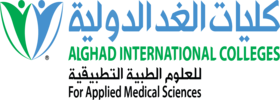An Overview and Introduction
Quality is one of the basic principles concerned with measuring and developing performance in various areas. Total Quality, in its administrative concept, is considered a regulatory mechanism governed by specific norms and standards that can be applied to administrative processes in commercial, industrial and service enterprises. Doing so ensures the coordination and optimal use of inputs, outputs and resources to achieve continuous improvement throughout various levels of the organization across the enterprise.
The application of total quality methodologies in education is considered one of the main pillars at Al-Ghad International Colleges for Applied Medical Sciences. This application ensures continuous improvement in the educational process and student learning outcomes so as to keep in line with the modern requirements in the areas of education, learning and professional practice.
The main pillars upon which the development and quality policies of Al Ghad Colleges are built to:
Provide an educational environment that conforms with the Colleges’ requirements and their strategic goals.
Measure performance and the quality of performance; identify and enhance the points of strengths; find optimal solutions for the points of weakness.
Optimal use and effective management of resources to achieve maximum benefits.
Engage employees in continuous improvement mechanisms and measure the satisfaction level of internal and external beneficiaries.
Create a system for the storage and documentation of data and documents which support the educational processes.
Continuous follow-up and improvement of the educational activities within the Colleges.
Mission
Vision
Achieve excellence and continuity in applying total quality standards for educational and administrative services.
Improve practices, policies and quality assurance standards.
Quality Assurance and the Academic Accreditation Objectives
Prepare general policies to improve the quality of academic programs.
Follow up the implementation of operational plans to achieve the strategic plan’s objectives.
Develop and improve learning outcomes to meet the labor market needs
Deepen the concepts of quality culture and academic accreditation among the Colleges’ employees to become an institutional trend.
Develop academic programs at the Colleges to meet quality requirements in accordance with the criteria of the National Center for Academic Accreditation and Assessment (NCAAA).
Enrich the capabilities of College employees in quality areas.
Encourage creativity and performance distinction among the College employees.





